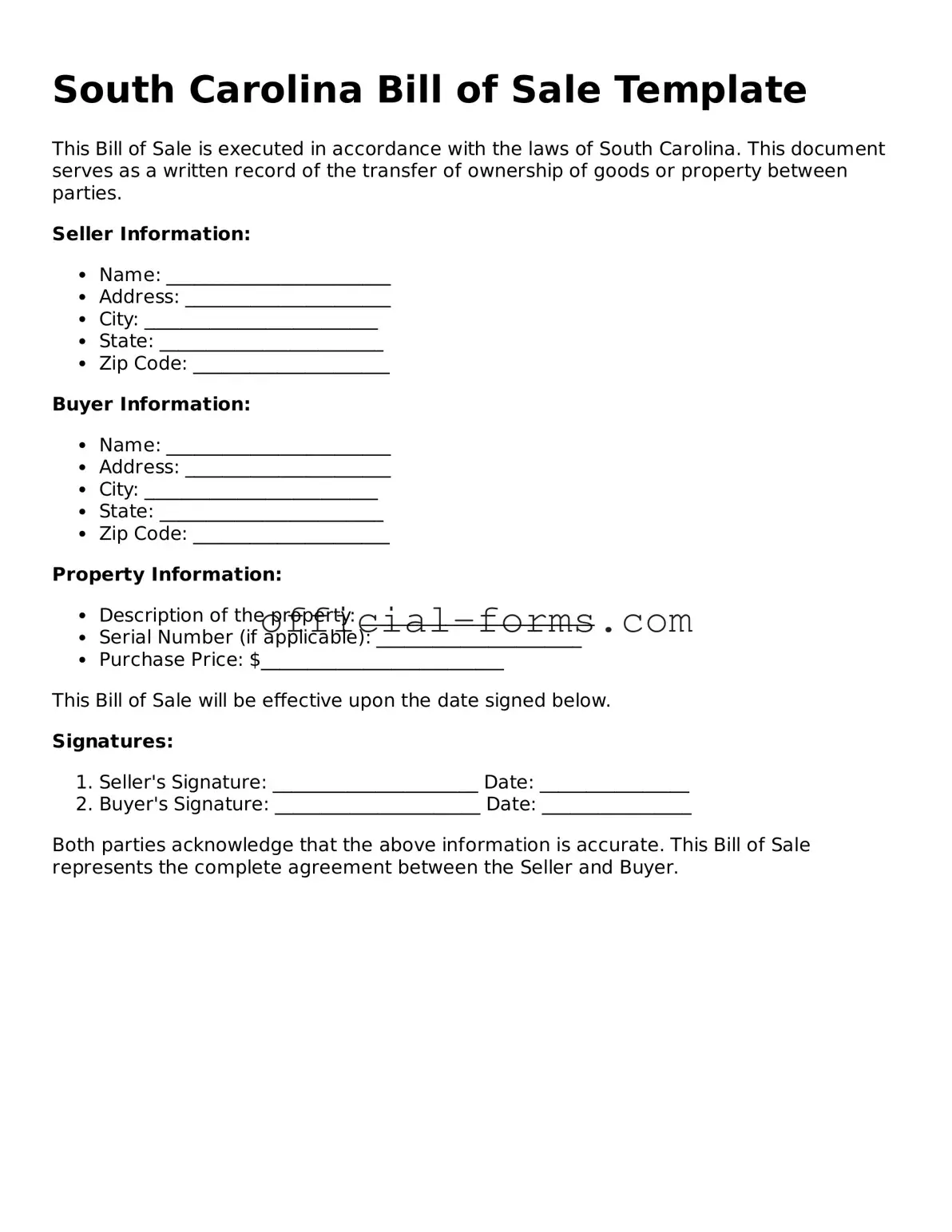Official South Carolina Bill of Sale Document
A Bill of Sale is a legal document that serves as proof of the transfer of ownership of personal property from one party to another. In South Carolina, this form is essential for both buyers and sellers, ensuring that the transaction is documented and legally binding. Understanding the nuances of this form can help individuals navigate the process of buying or selling items effectively.
Open My Bill of Sale Now

Official South Carolina Bill of Sale Document
Open My Bill of Sale Now
Don’t leave your form incomplete
Finish Bill of Sale online quickly from start to download.
Open My Bill of Sale Now
or
➤ PDF
